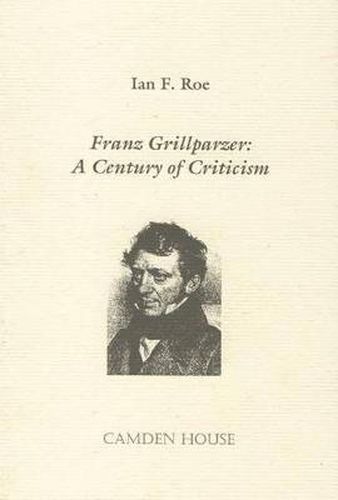Readings Newsletter
Become a Readings Member to make your shopping experience even easier.
Sign in or sign up for free!
You’re not far away from qualifying for FREE standard shipping within Australia
You’ve qualified for FREE standard shipping within Australia
The cart is loading…






Franz Grillparzer (1791-1872) was the leading Austrian dramatist of the nineteenth century; his plays were and are frequently performed at the famous Burgtheater in Vienna. However, his works have always eluded easy definition; hehimself acknowledged that his plays were shaped by many different literary influences. Critics agree only that he is a fascinating synthesis of contrasting elements, and recently the modern aspects of his work have been stressed,such as his questioning of moral absolutes and his refusal to offer easy solutions. The psychological realism of his character portrayal and the subtleties of his language also reveal Grillparzer as a writer whose stylistic characteristics foreshadow those of modern literature. In this first comprehensive survey of the critical literature devoted to Grillparzer, Dr Roe highlights the main critical debates and provides a chronological account of the developments, through misunderstanding or neglect, to his political appropriation by the Nazis, and the recent domination of sociological and psychoanalytical schools of thought.
$9.00 standard shipping within Australia
FREE standard shipping within Australia for orders over $100.00
Express & International shipping calculated at checkout
Franz Grillparzer (1791-1872) was the leading Austrian dramatist of the nineteenth century; his plays were and are frequently performed at the famous Burgtheater in Vienna. However, his works have always eluded easy definition; hehimself acknowledged that his plays were shaped by many different literary influences. Critics agree only that he is a fascinating synthesis of contrasting elements, and recently the modern aspects of his work have been stressed,such as his questioning of moral absolutes and his refusal to offer easy solutions. The psychological realism of his character portrayal and the subtleties of his language also reveal Grillparzer as a writer whose stylistic characteristics foreshadow those of modern literature. In this first comprehensive survey of the critical literature devoted to Grillparzer, Dr Roe highlights the main critical debates and provides a chronological account of the developments, through misunderstanding or neglect, to his political appropriation by the Nazis, and the recent domination of sociological and psychoanalytical schools of thought.